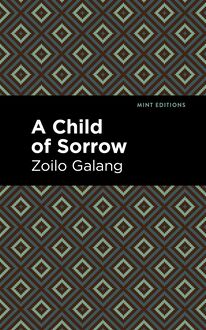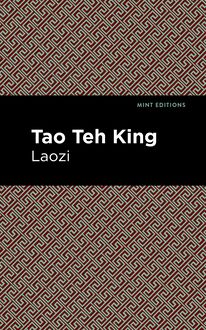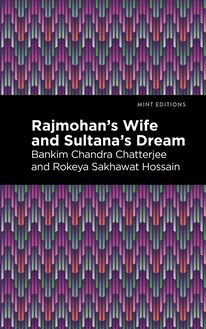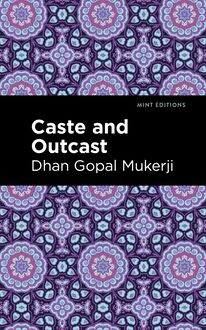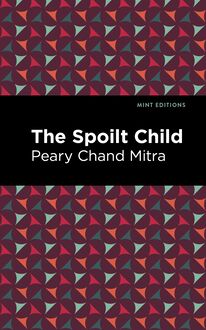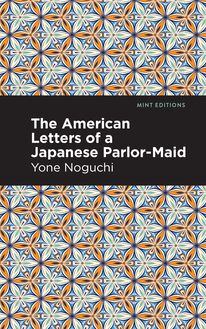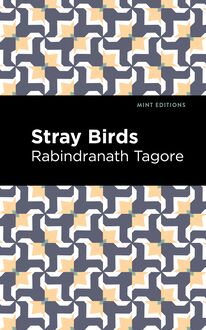-
 Univers
Univers
-
 Ebooks
Ebooks
-
 Livres audio
Livres audio
-
 Presse
Presse
-
 Podcasts
Podcasts
-
 BD
BD
-
 Documents
Documents
-
- Cours
- Révisions
- Ressources pédagogiques
- Sciences de l’éducation
- Manuels scolaires
- Langues
- Travaux de classe
- Annales de BEP
- Etudes supérieures
- Maternelle et primaire
- Fiches de lecture
- Orientation scolaire
- Méthodologie
- Corrigés de devoir
- Annales d’examens et concours
- Annales du bac
- Annales du brevet
- Rapports de stage
La lecture à portée de main
Vous pourrez modifier la taille du texte de cet ouvrage
Découvre YouScribe en t'inscrivant gratuitement
Je m'inscrisDécouvre YouScribe en t'inscrivant gratuitement
Je m'inscrisEn savoir plus
Vous pourrez modifier la taille du texte de cet ouvrage
En savoir plus

Description
The life story of the Chinese diplomat and educational pioneer who bridged the gap between east and western cultures to affect social and political change. Yung Wing’s influence is felt throughout modern history and remains a crucial part of U.S. and Chinese relations.
The first edition of My Life in China and America was published in 1909. Initially written in English, Yung Wing explores his humble beginnings in a small village in his native country. He discusses the move from China to America where he received a formal education. This would lead to his history-making stint at Yale University, where he became the first Chinese person to graduate from an American institution. His professional career is full of notable feats including trailblazing business deals between the U.S. and China. Wing also spearheaded the Chinese Educational Mission, which sent more than 100 students to America to study science and engineering.
My Life in China and America brings Yung Wing’s incredible story to the masses. It’s a real-life tale of tragedy and triumph that speaks to the resilience of the human spirit. It’s a critical piece of Chinese and American history that should be taught and valued.
With an eye-catching new cover, and professionally typeset manuscript, this edition of My Life in China and America is both modern and readable.
Sujets
Informations
| Publié par | Mint Editions |
| Date de parution | 24 mars 2021 |
| Nombre de lectures | 0 |
| EAN13 | 9781513279077 |
| Langue | English |
| Poids de l'ouvrage | 2 Mo |
Informations légales : prix de location à la page 0,0400€. Cette information est donnée uniquement à titre indicatif conformément à la législation en vigueur.
Extrait
My Life in China and America
Yung Wing
My Life in China and America was first published in 1909.
This edition published by Mint Editions 2021.
ISBN 9781513278612 | E-ISBN 9781513279077
Published by Mint Editions ®
minteditionbooks .com
Publishing Director: Jennifer Newens
Design & Production: Rachel Lopez Metzger
Project Manager: Micaela Clark
Typesetting: Westchester Publishing Services
C ONTENTS I. B OYHOOD II. S CHOOL D AYS III. J OURNEY TO A MERICA AND F IRST E XPERIENCES T HERE IV. A T M ONSON A CADEMY V. M Y C OLLEGE D AYS VI. R ETURN TO C HINA VII. E FFORT TO F IND A P OSITION VIII. E XPERIENCES IN B USINESS IX. M Y F IRST T RIP TO THE T EA D ISTRICTS X. M Y V ISIT TO THE T AIPINGS XI. R EFLECTIONS ON THE T AIPING R EBELLION XII. E XPEDITION TO THE T AIPING T EA D ISTRICT XIII. M Y I NTERVIEWS WITH T SANG K WOH F AN XIV. M Y M ISSION TO A MERICA TO B UY M ACHINERY XV. M Y S ECOND R ETURN TO C HINA XVI. P ROPOSAL OF M Y E DUCATIONAL S CHEME XVII. T HE C HINESE E DUCATIONAL M ISSION XVIII. I NVESTIGATION OF THE C OOLIE T RAFFIC IN P ERU XIX. E ND OF THE E DUCATIONAL M ISSION XX. J OURNEY TO P EKING AND D EATH OF M Y W IFE XXI. M Y R ECALL TO C HINA XXII. T HE C OUP D’ ETAT OF 1898
I
B OYHOOD
I was born on the 17th of November, 1828, in the village of Nam Ping (South Screen) which is about four miles southwest of the Portuguese Colony of Macao, and is situated on Pedro Island lying west of Macao, from which it is separated by a channel of half a mile wide.
I was one of a family of four children. A brother was the eldest, a sister came next, I was the third, and another brother was the fourth and the youngest of the group. I am the only survivor of them all.
As early as 1834, an English lady, Mrs. Gutzlaff, wife of the Rev. Charles Gutzlaff, a missionary to China, came to Macao and, under the auspices of the Ladies’ Association in London for the promotion of female education in India and the East, immediately took up the work of her mission by starting a girls’ school for Chinese girls, which was soon followed by the opening of a school for boys also.
Mrs. Gutzlaff’s comprador or factotum happened to come from the village I did and was, in fact, my father’s friend and neighbor. It was through him that my parents heard about Mrs. Gutzlaff’s school and it was doubtless through his influence and means that my father got me admitted into the school. It has always been a mystery to me why my parents should take it into their heads to put me into a foreign school, instead of a regular orthodox Confucian school, where my brother much older than myself was placed. Most assuredly such a step would have been more in play with Chinese public sentiment, taste, and the wants of the country at large, than to allow me to attend an English school; moreover, a Chinese cult is the only avenue in China that leads to political preferment, influence, power and wealth. I can only account for the departure thus taken on the theory that as foreign intercourse with China was just beginning to grow, my parents, anticipating that it might soon assume the proportions of a tidal wave, thought it worth while to take time by the forelock and put one of their sons to learning English that he might become one of the advanced interpreters and have a more advantageous position from which to make his way into the business and diplomatic world. This I take to be the chief aim that influenced my parents to put me into Mrs. Gutzlaff’s Mission School. As to what other results or sequences it has eventually brought about in my subsequent life, they were entirely left to Him who has control of all our devising and planning, as they are governed by a complete system of divine laws of antecedents and consequents, or of cause and effect.
In 1835, when I was barely seven years of age, my father took me to Macao. Upon reaching the school, I was brought before Mrs. Gutzlaff. She was the first English lady I had ever seen. On my untutored and unsophisticated mind she made a deep impression. If my memory serves me right, she was somewhat tall and well-built. She had prominent features which were strong and assertive; her eyes were of clear blue lustre, somewhat deep set. She had thin lips, supported by a square chin,—both indicative of firmness and authority. She had flaxen hair and eyebrows somewhat heavy. Her features taken collectively indicated great determination and will power.
As she came forward to welcome me in her long and full flowing white dress (the interview took place in the summer), surmounted by two large globe sleeves which were fashionable at the time and which lent her an exaggerated appearance, I remember most vividly I was no less puzzled than stunned. I actually trembled all over with fear at her imposing proportions—having never in my life seen such a peculiar and odd fashion. I clung to my father in fear. Her kindly expression and sympathetic smiles found little appreciative response at the outset, as I stood half dazed at her personality and my new environment. For really, a new world had dawned on me. After a time, when my homesickness was over and the novelty of my surroundings began gradually to wear away, she completely won me over through her kindness and sympathy. I began to look upon her more like a mother. She seemed to take a special interest in me; I suppose, because I was young and helpless, and away from my parents, besides being the youngest pupil in the school. She kept me among her girl pupils and did not allow me to mingle with what few boys there were at the time.
There is one escapade that I can never forget! It happened during the first year in the school, and was an attempt on my part to run away. I was shut up in the third story of the house, which had a wide open terrace on the top,—the only place where the girls and myself played and found recreation. We were not allowed to go out of doors to play in the streets. The boy pupils had their quarters on the ground floor and had full liberty to go out for exercise. I used to envy them their freedom and smuggled down stairs to mingle with them in their sports after school hours. I felt ill at ease to be shut up with the girls all alone way up in the third story. I wanted to see something of the outside world. I occasionally stole down stairs and ventured out to the wharves around which were clustered a number of small ferry boats which had a peculiar fascination to my young fancy. To gain my freedom, I planned to run away. The girls were all much older than I was, and a few sympathized with me in my wild scheme; doubtless, from the same restlessness of being too closely cooped up. I told them of my plan. Six of the older ones fell in with me in the idea. I was to slip out of the house alone, go down to the wharf and engage a covered boat to take us all in.
The next morning after our morning meal, and while Mrs. Gutzlaff was off taking her breakfast, we stole out unbeknown to any one and crowded into the boat and started off in hot haste for the opposite shore of Pedro Island. I was to take the whole party to my home and from there the girls were to disperse to their respective villages. We were half way across the channel when, to my great consternation, I saw a boat chasing us, making fast time and gaining on us all the while. No promise of additional pay was of any avail, because our two oars against their four made it impossible for us to win out; so our boatmen gave up the race at the waving of handkerchiefs in the other boat and the whole party was captured. Then came the punishment. We were marched through the whole school and placed in a row, standing on a long narrow school table placed at one end of the school room facing all the pupils in front of us. I was placed in the center of the row, with a tall foolscap mounted on my head, having three girls on the right and three on the left. I had pinned on my breast a large square placard bearing the inscription, “Head of the Runaways;” there we stood for a whole hour till school was dismissed. I never felt so humiliated in my life as I did when I was undergoing that ordeal. I felt completely crestfallen. Some of the mischievous fellows would extract a little fun out of this display by taking furtive glances and making wry faces at us. Mrs. Gutzlaff, in order to aggravate our punishment, had ordered ginger snaps and oranges to be distributed among the other pupils right before us.
Mrs. Gutzlaff’s school, started in September, 1835, was originally for girls only. Pending the organization and opening of the so-called “Morrison Education Society School,” in the interval between 1835 and 1839, a department for boys was temporarily incorporated into her school, and part of the subscription fund belonging to the M. E. S. School was devoted to the maintenance of this one.
This accounts for my entrance into Mrs. Gutzlaff’s School, as one of only two boys first admitted. Her school being thus enlarged and modified temporarily, Mrs. Gutzlaff’s two nieces—the Misses Parkes, sisters to Mr. Harry Parkes who was afterwards knighted, by reason of the conspicuous part he played in the second Opium War, in 1864, of which he was in fact the originator—came out to China as assistants in the school. I was fortunately placed under their instruction for a short time.
Afterwards the boys’ school under Mrs. Gutzlaff and her two nieces, the Misses Parkes, was broken up; that event parted our ways in life in divergent directions. Mrs. Gutzlaff went over to the United States with three blind girls,—Laura, Lucy and Jessie. The Misses Parkes were married to missionaries, one to Dr. William Lockhart, a medical missionary; the other to a Rev. Mr. MacClatchy, also a missionary. They labored long in China, under the auspices of the London Missionary Society. The three blind girls whom Mrs. Gutzlaff took with her were taught by me to read on raised letters till they could read from the Bible and Pi
-
 Univers
Univers
-
 Ebooks
Ebooks
-
 Livres audio
Livres audio
-
 Presse
Presse
-
 Podcasts
Podcasts
-
 BD
BD
-
 Documents
Documents
-
Jeunesse
-
Littérature
-
Ressources professionnelles
-
Santé et bien-être
-
Savoirs
-
Education
-
Loisirs et hobbies
-
Art, musique et cinéma
-
Actualité et débat de société
-
Jeunesse
-
Littérature
-
Ressources professionnelles
-
Santé et bien-être
-
Savoirs
-
Education
-
Loisirs et hobbies
-
Art, musique et cinéma
-
Actualité et débat de société
-
Actualités
-
Lifestyle
-
Presse jeunesse
-
Presse professionnelle
-
Pratique
-
Presse sportive
-
Presse internationale
-
Culture & Médias
-
Action et Aventures
-
Science-fiction et Fantasy
-
Société
-
Jeunesse
-
Littérature
-
Ressources professionnelles
-
Santé et bien-être
-
Savoirs
-
Education
-
Loisirs et hobbies
-
Art, musique et cinéma
-
Actualité et débat de société
- Cours
- Révisions
- Ressources pédagogiques
- Sciences de l’éducation
- Manuels scolaires
- Langues
- Travaux de classe
- Annales de BEP
- Etudes supérieures
- Maternelle et primaire
- Fiches de lecture
- Orientation scolaire
- Méthodologie
- Corrigés de devoir
- Annales d’examens et concours
- Annales du bac
- Annales du brevet
- Rapports de stage

